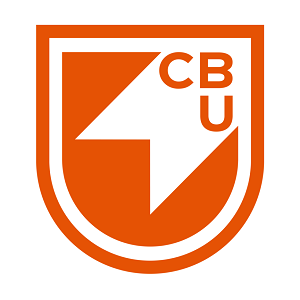
-
Canada
-
Sydney, Nova Scotia, Canada
-
School Type: University

Australian College of Information Technology

Houghton Academy

Youngstown State University

University of Cincinnati

Brock University
Cape Breton University (CBU) is a small, designated university situated on Cape Breton Island in Nova Scotia, a picturesque coastal region in Eastern Canada. The university is known for its tight-knit community atmosphere and professional programs, attracting a large number of international students. Prospective students should be prepared for cold winters, with temperatures averaging around -10 degrees Celsius.
Important Notes
- Designated Learning Institution: Programs are applicable for the Post-Graduation Work Permit (PGWP).
- Small University: Approximately 5,500 students.
- International Students: Around half of the student body is international, with over 2,500 students from abroad.
Program Areas
- Sciences
- Liberal and Social Arts
- Professional Studies: Includes specialized degrees in Nursing and Education, which have unique dates, deadlines, and admissions processes.
- School of Business: Focuses on entrepreneurial education.
Entry Requirements
- Minimum Entry Requirements: Specific to each country; details are listed on the university’s website.
- English Language Test Scores:
- TOEFL: 550 (paper-based), 80 (internet-based)
- IELTS: 6.5
- CAEL: 60
- MELAB: 85
- Pearson PTE: 59
- CanTEST: 4.5 (reading/listening), 4 (writing)
- Duolingo: 115
- Scores must be sent directly by the testing agency.
- Exemptions: Students who have completed two years of secondary school in English or 30 credit hours of post-secondary education in English.
- Program-Specific Requirements: Individual programs may have additional specific requirements.
This comprehensive overview highlights the key aspects of Cape Breton University, ensuring prospective students have the necessary information to apply and succeed.

Getting There
- Application Deadlines: Deadlines vary by program. To ensure timely processing for September intake, apply by March 31st. Some offers may still be made after this date. There are also intakes in January and May.
- Scholarships and Bursaries: Apply for entrance scholarships and bursaries by March 1st for the September intake.
- Application Fee: $80
- Processing Time: Applications typically take five weeks to process.
- Payment Terms:
- Deposit and Full Tuition Payment Dates:
- Fall term: September 30
- Winter term: January 30
- Spring term: May 30
- Yearly Fees: Health plan fees must be paid by September 30.
- Residence and Meal Plan Fees: Due at the beginning of each term.
- Deposit and Full Tuition Payment Dates:
- Refund Policy: Students who receive an offer and pay the deposit but are not granted a study visa are eligible for a full refund of the deposit.
Living There
- Location: Cape Breton Island, on the traditional territories of the Mi’kmaw First Nation. The island has a smaller population and beautiful natural landscapes.
- Weather: Comfortable summers and cold, snowy winters. Warm clothing is essential.
- Amenities: Student parking and transit available, as well as on-campus residences. The nearby airport provides convenient access, but no large cities are within a reasonable day’s transit.
Tuition, Costs, and Financial Aid
- Tuition: The average cost for undergraduate programs is $18,515 CAD per year, including fees but excluding living costs. This is relatively low for Canadian universities.
- Residence and Meal Plan: Costs range from $11,000 to $15,000 CAD per year, depending on room type and meal plan.
- Scholarships:
- Entrance Scholarship: Requires an official transcript.
- Bursaries: Based on financial need. Submit either an Entrance Bursary Form or In-Course Bursary Form and provide income tax assessments.
Cape Breton University offers a welcoming and supportive environment for students, with a variety of programs, financial aid options, and a beautiful coastal setting.


